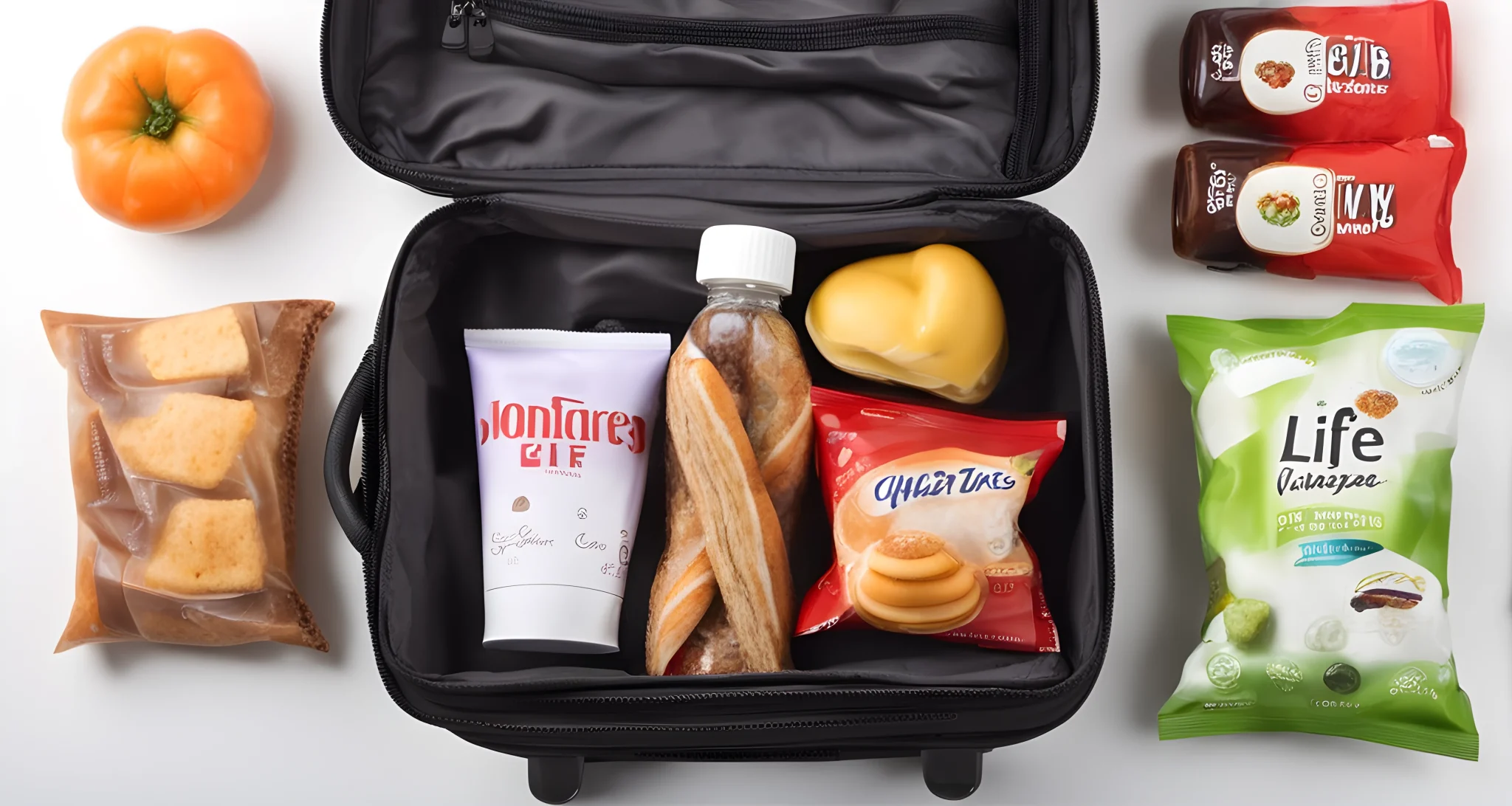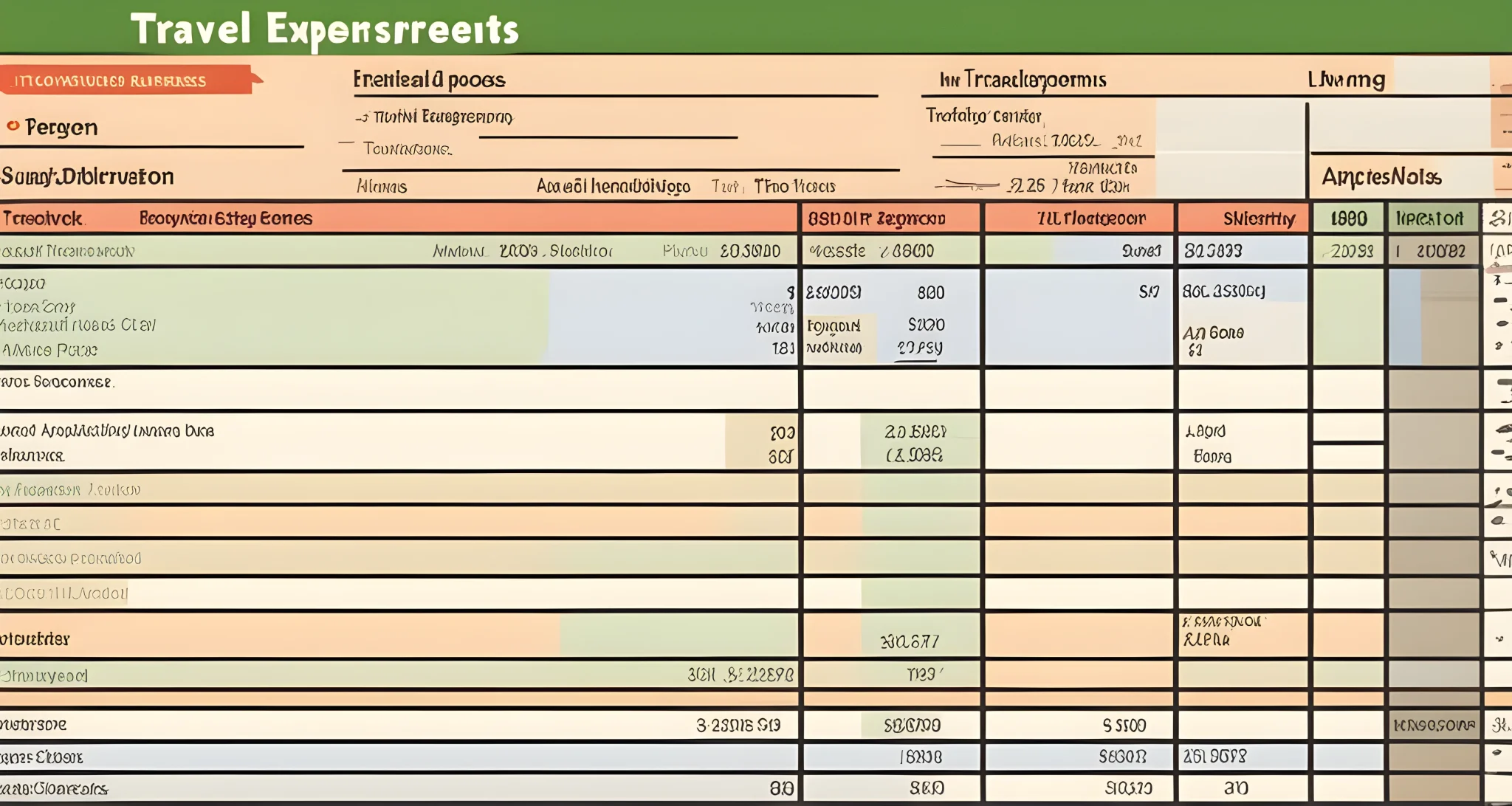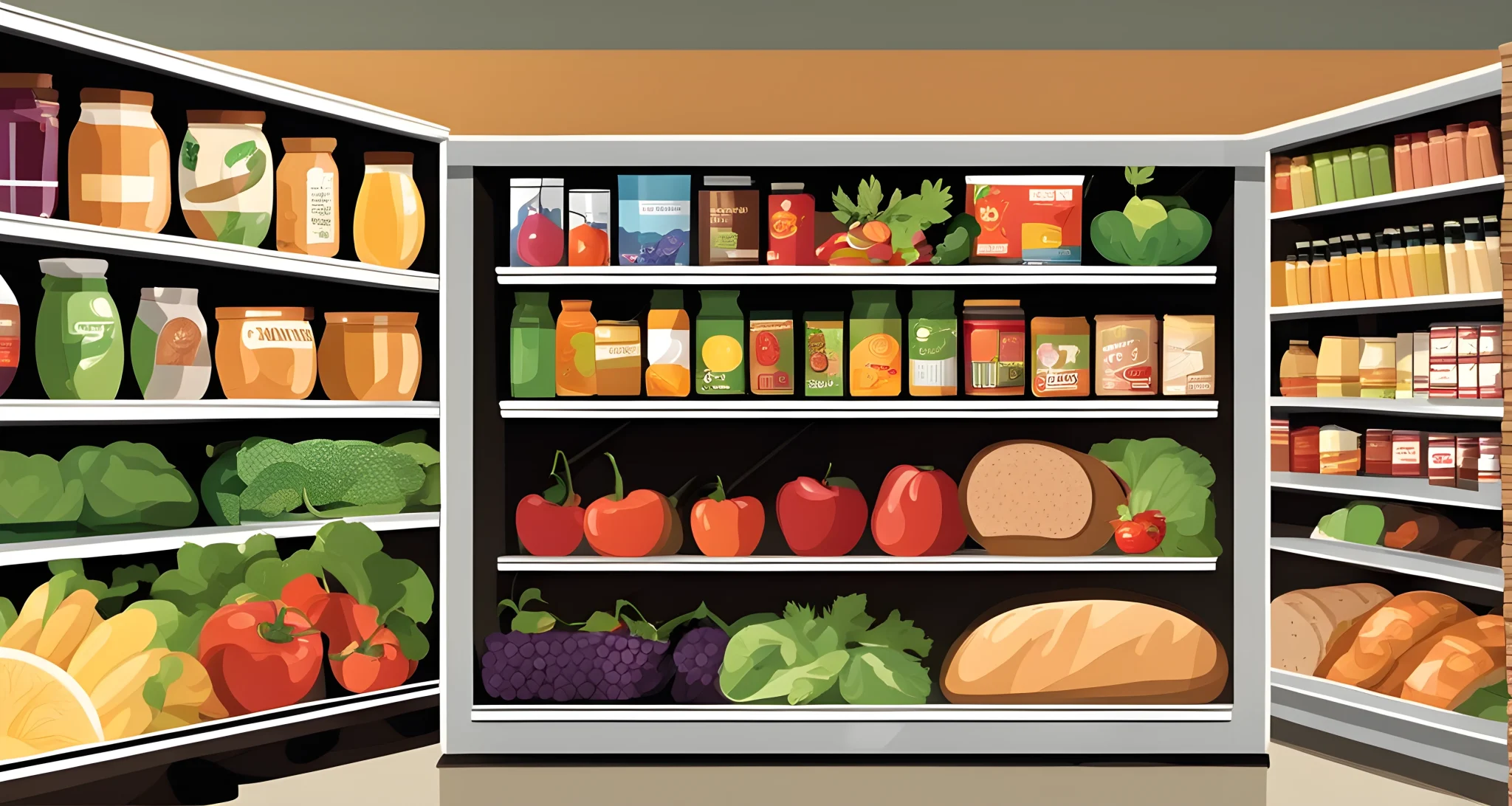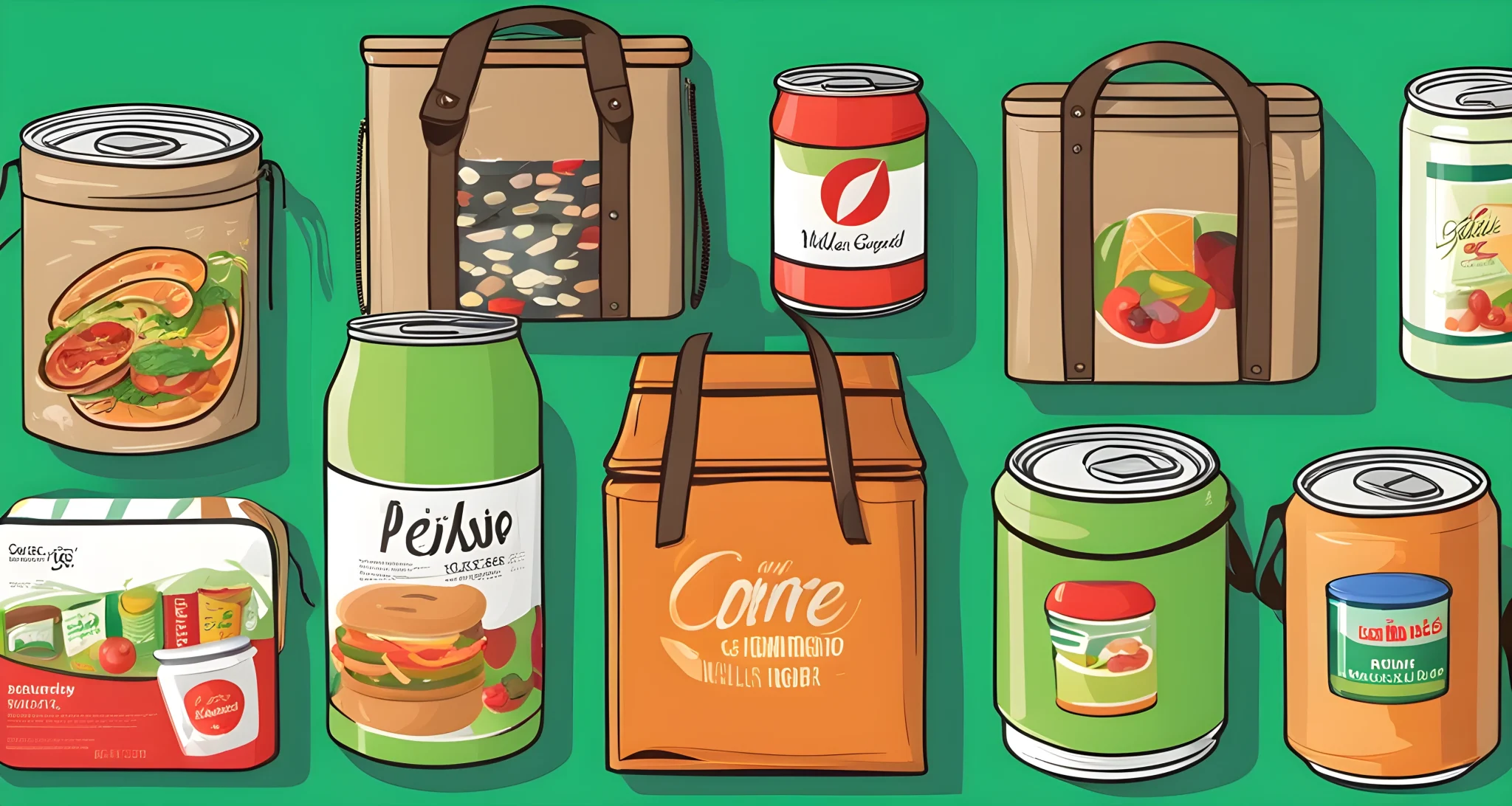Introduction
Traveling can be an exciting and enriching experience, but it can also be expensive. One of the biggest expenses for travelers is food. However, with some careful planning and budgeting, it is possible to save money without sacrificing the enjoyment of trying new and delicious cuisines.
In this article, we will provide you with some detailed tips to help you save money on food while on vacation. From researching local eatery options to packing snacks and drinks, we will cover a range of strategies that will help you stay within budget without compromising on the culinary experience.
So, whether you are planning a weekend getaway or a month-long adventure, these tips will help you make the most of your travel budget when it comes to food. And if you want to explore even more economical food options for travelers, be sure to check out our article on Economical food options for travelers.
So let’s dive in and discover how you can enjoy delicious meals without breaking the bank!

Factors to Consider for Budgeting a Trip
When budgeting for a trip, there are several factors to consider in order to make the most of your travel funds. By taking these factors into account, you can ensure that you have enough money set aside for dining while still being able to enjoy the local cuisine without breaking the bank.
Research Local Eateries
Before heading out to eat, it’s important to research local eateries in the area you will be visiting. Look for restaurants, cafes, and food vendors that offer affordable options without sacrificing taste and quality. Check out online review platforms like Yelp or TripAdvisor to compare prices and ratings of different establishments. This will help you make informed decisions about where to dine during your trip.
Deals, Coupons, and Special Offers
Take advantage of deals, coupons, and special offers from local restaurants and eateries. Many places offer discounts for specific days of the week, early bird specials, or meal deals that can help stretch your dining budget. Keep an eye out for promotions on social media or sign up for newsletters from local establishments to stay informed about any upcoming offers.
Frugal Travel Advice
For additional tips on how to save money on food and dining while traveling, check out this article on Frugal travel advice. It provides 10 helpful tips for affordable adventures, including how to find cheap eats and budget-friendly dining options in popular travel destinations.
By considering these factors and doing a little pre-trip research, you can make the most of your dining budget while still enjoying delicious meals during your travels.

Creating a Detailed Travel Budget Spreadsheet
When it comes to budgeting for a trip, creating a detailed travel budget spreadsheet can be a game changer. By breaking down your expenses into categories and items, you can easily track and manage your spending. Here are some tips for creating an effective travel budget spreadsheet:
- Start with Non-Perishable Snacks and Drinks: Stock up on non-perishable snacks and drinks before your trip to avoid overpriced options on the road. Buying these items locally can save you money compared to purchasing them on the road.
- Use Categories to Organize Expenses: Divide your expenses into categories such as transportation, accommodation, food, activities, and miscellaneous. This will give you a clear overview of where your money is going.
- Research Local Prices: Before your trip, research the prices of essential items such as groceries, toiletries, and transportation at your destination. This will help you estimate how much you need to budget for these items.
- Track Your Spending: Once you’re on your trip, keep track of your spending by updating your travel budget spreadsheet regularly. This will help you stay within your budget and avoid overspending.
- Consider Exchange Rates: If you’re traveling internationally, consider exchange rates when budgeting for expenses. It’s important to factor in currency conversions when estimating costs.
- Plan for Emergencies: Include a buffer in your budget for unexpected expenses or emergencies. Having a contingency fund will give you peace of mind during your travels.
A detailed travel budget spreadsheet not only helps you stay on track financially but also gives you a clear picture of your overall travel expenses. By planning ahead and being mindful of your spending, you can make the most of your travel experience without breaking the bank.
For more tips on saving money while traveling solo, check out Economical Solo Expedition Tips.

Refining Your Budget by Expense Categories
When it comes to budgeting for your trip, breaking down your expenses into categories can help you better manage your finances. By refining your budget by expense categories, you can identify areas where you can save money and allocate funds to the aspects of your trip that matter most to you. Here are some tips for refining your budget by expense categories:
Cooking Your Own Meals
- If you’re staying in a rental or apartment with kitchen facilities, consider cooking your own meals. This can be especially beneficial for families or larger groups. You can also prep meals at home and reheat them while on vacation.
Dining Out
- Allocate a portion of your budget for dining out at local restaurants and cafes. Research affordable dining options in the area you’ll be visiting to find delicious meals at reasonable prices.
Transportation
- Consider all transportation costs, including flights, car rentals, public transit, and parking fees. Look for Affordable Airfare Tips to save on flight expenses and compare prices for car rentals and public transit options.
Accommodation
- Budget for accommodations based on the type of lodging you prefer, whether it’s a hotel, vacation rental, hostel, or camping site. Look for deals and discounts to reduce accommodation costs.
Entertainment and Activities
- Plan ahead for activities such as sightseeing tours, museum visits, outdoor excursions, and entertainment events. Look for free or discounted activities in the area to make the most of your budget.
Souvenirs and Shopping
- Set aside a specific amount for souvenirs and shopping. Be mindful of impulse purchases and consider setting a spending limit for each person in your travel group.
Miscellaneous Expenses
- Factor in miscellaneous expenses such as travel insurance, currency exchange fees, gratuities, and unexpected costs. Having a buffer in your budget can provide peace of mind during your trip.
By refining your budget by expense categories, you can gain a clear understanding of where your money is going and make informed decisions about how to allocate funds during your travels. This approach allows you to prioritize the aspects of your trip that are most important to you while finding opportunities to save money in other areas. With careful planning and smart budgeting, you can enjoy a memorable travel experience without breaking the bank.

Budgeting by Item or Category
When it comes to budgeting for food during your travels, it can be helpful to break down your expenses by item or category. This approach allows you to see exactly where your money is going and where you might be able to cut costs. Here are some tips for budgeting by item or category:
-
Street Food: Street food is often cheaper and offers a taste of local cuisine. Try iconic dishes like soft pretzels in New York City, gyros in Athens, or tacos in Cancun. This can be a great way to experience the local culture while saving money.
-
Local Grocery Stores: Visit local grocery stores and markets to pick up fresh produce, bread, and other essentials. This can be a much more affordable option than constantly dining out at restaurants. Consider cooking some of your own meals using ingredients from the local market. For more tips on cooking your own meals while traveling, check out Meal Prep on the Go.
-
Beverages: Beverages like coffee, alcohol, and bottled water can add up quickly. Consider buying these items from grocery stores or convenience stores rather than constantly purchasing them from cafes or restaurants.
-
Dining Out: If you plan on dining out at restaurants, set a daily or weekly budget for this category. Research affordable dining options in advance and look for special deals or happy hour discounts.
-
Snacks and Treats: It’s easy to overspend on snacks and treats while traveling. Allocate a specific amount of money for indulgences like ice cream, pastries, or other local delicacies.
By breaking down your food budget into specific items or categories, you can gain better insight into where your money is going and make adjustments as needed. This approach can help you save money while still enjoying delicious meals during your travels.
Remember to consider factors such as local currency exchange rates, tipping customs, and taxes when planning your food budget. With careful planning and consideration, you can enjoy amazing culinary experiences without breaking the bank. Happy travels!

Conclusion
In conclusion, saving money on travel food is not only achievable but can also be a fun and rewarding experience. By considering the factors mentioned in this article, such as planning ahead, cooking your own meals, and utilizing discounts and rewards programs, you can significantly reduce your food expenses while traveling. Additionally, considering Affordable Lodging Advice like Airbnb stays can also help you save on accommodations, allowing you to allocate more of your budget towards dining experiences. Lastly, don’t forget to share meals with your travel companions when dining out – not only does this help reduce costs, but it also allows you to sample a wider variety of dishes. By incorporating these tips into your travel plans and being mindful of your spending, you can enjoy delicious meals without breaking the bank. Happy travels!
FAQ
How can i save money on food while traveling?
You can save money on food while traveling by researching local eateries, packing snacks and drinks, cooking your own meals, exploring local street food, and sharing meals with your travel companions.
What are some ways to find affordable dining options?
To find affordable dining options, research local eateries for deals and special offers, pack non-perishable snacks and drinks, and explore street food for cheaper, local cuisine.
Is it cost-effective to cook while on vacation?
Cooking while on vacation can be cost-effective, especially for families or larger groups. consider staying in a rental or apartment with kitchen facilities and prepping meals at home to save money on dining out.
How can i experience local cuisine without overspending?
To experience local cuisine without overspending, explore local street food for cheap, iconic dishes, and consider sharing meals with your travel companions to sample a variety of dishes without breaking the bank.
